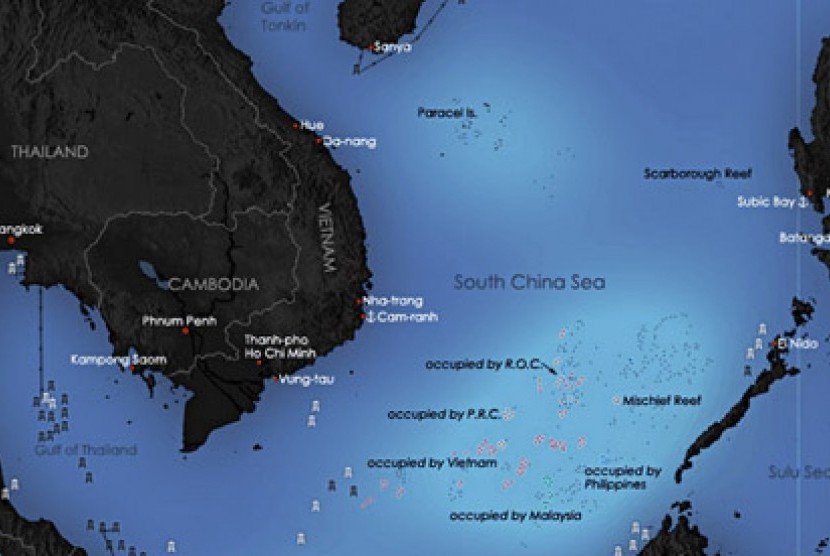REPUBLIKA.CO.ID, BEIJING -- China's foreign ministry said on Tuesday that it was "extremely concerned" after leaders of Southeast Asian countries expressed worry about land reclamation and navigational freedom in the disputed South China Sea.
China's reclamation work in the South China Sea has become the latest source of tension with some of its smaller neighbors, several of whom have competing territorial claims in the waters.
The 10-member Association of Southeast Asian Nations (ASEAN) said after a summit this week in Kuala Lumpur that reclamation work had "eroded trust and confidence and may undermine peace, security and stability in the South China Sea".
Chinese Foreign Ministry spokesman Hong Lei said that China was "extremely concerned" that the closing statement addressed the South China Sea issue, which he said was not a problem between China and ASEAN.
"On this issue China has exercised extreme restraint," he said, repeating that China believed the dispute should be resolved via direct talks between the claimants.
There were no problems with freedom of navigation in the waters, Hong told a daily news briefing.
In a speech to ASEAN heads on state on Monday, Philippine president Benigno Aquino said the "massive reclamations" by China posed a threat to the security and stability of the region.
Hong said that China had a right to build on islands in the South China Sea.
"China resolutely opposes individual countries making insinuations about China for their own selfish interests and taking hostage the China-ASEAN relationship," he added.
China claims 90 percent of the South China Sea, which is believed to be rich in oil and gas, with overlapping claims from Brunei, Malaysia, the Philippines, Vietnam and Taiwan.
Recent satellite images show China has made rapid progress in building an airstrip suitable for military use in the Spratly Islands and may be planning another.
While many of the claimants have built facilities such as airstrips on some of the islets and shoals they occupy, China's efforts have been by far the most extensive and dramatic.
Disputes over how to address an increasingly assertive role of China - an ally of several ASEAN states - in the strategic waters of the South China Sea has placed the issue squarely as Southeast Asia's biggest potential military flashpoint.


